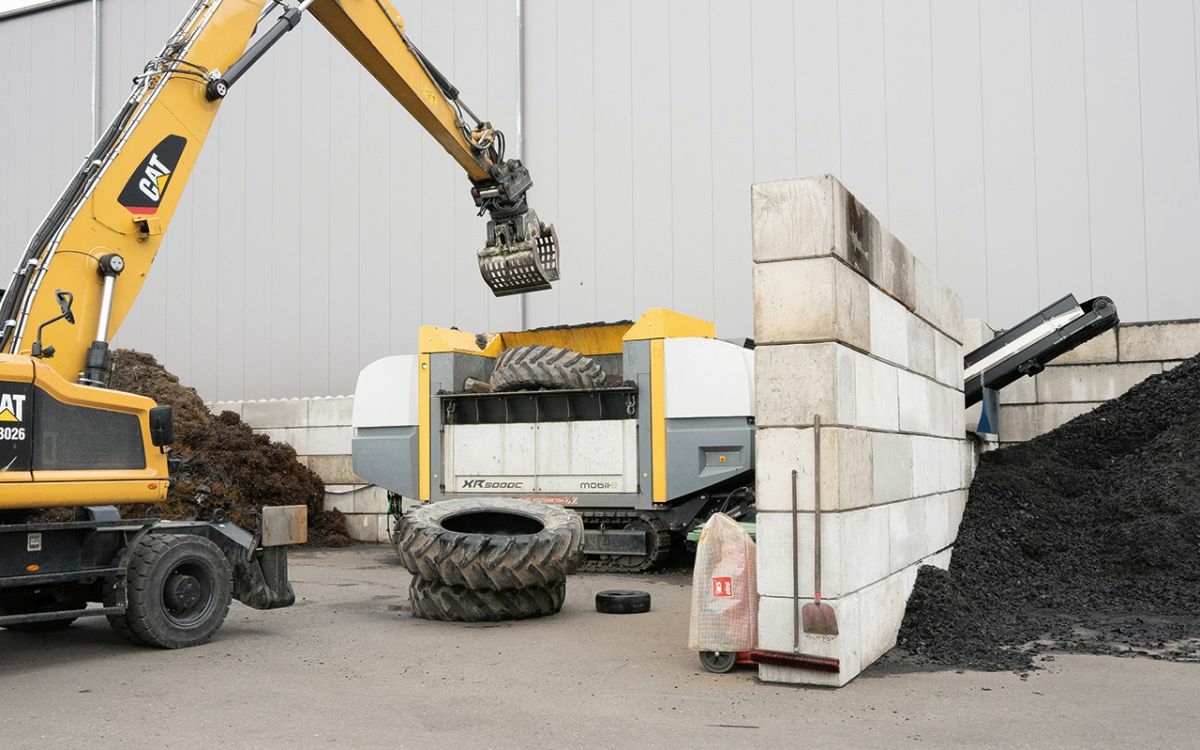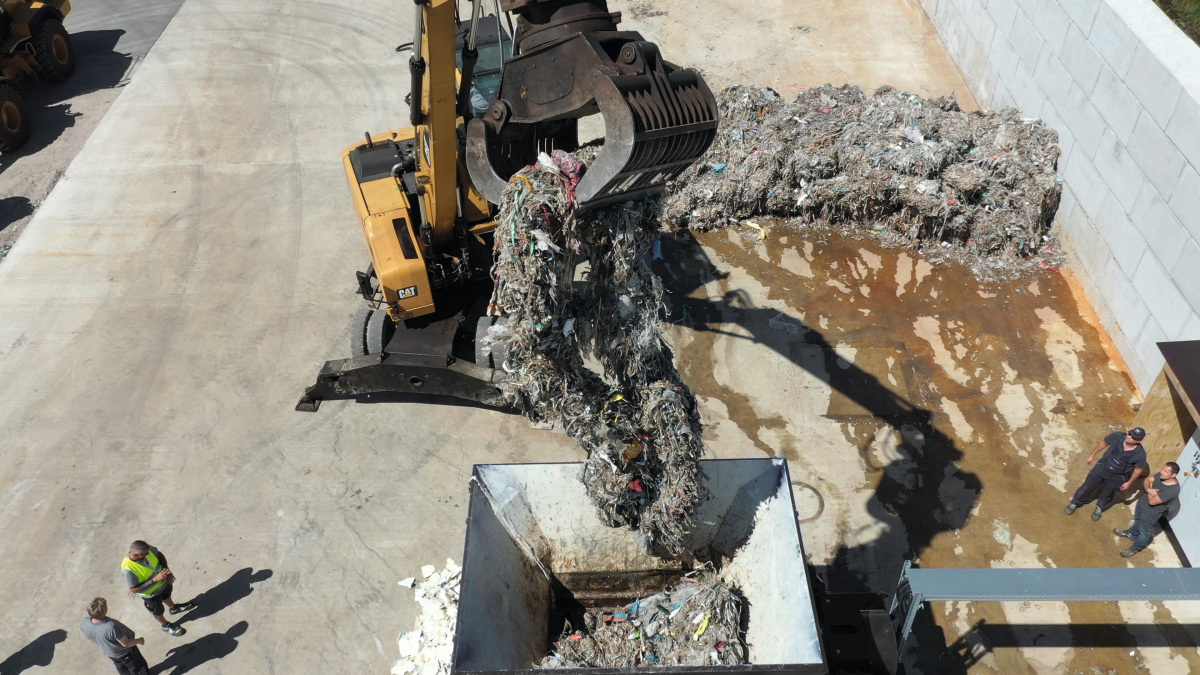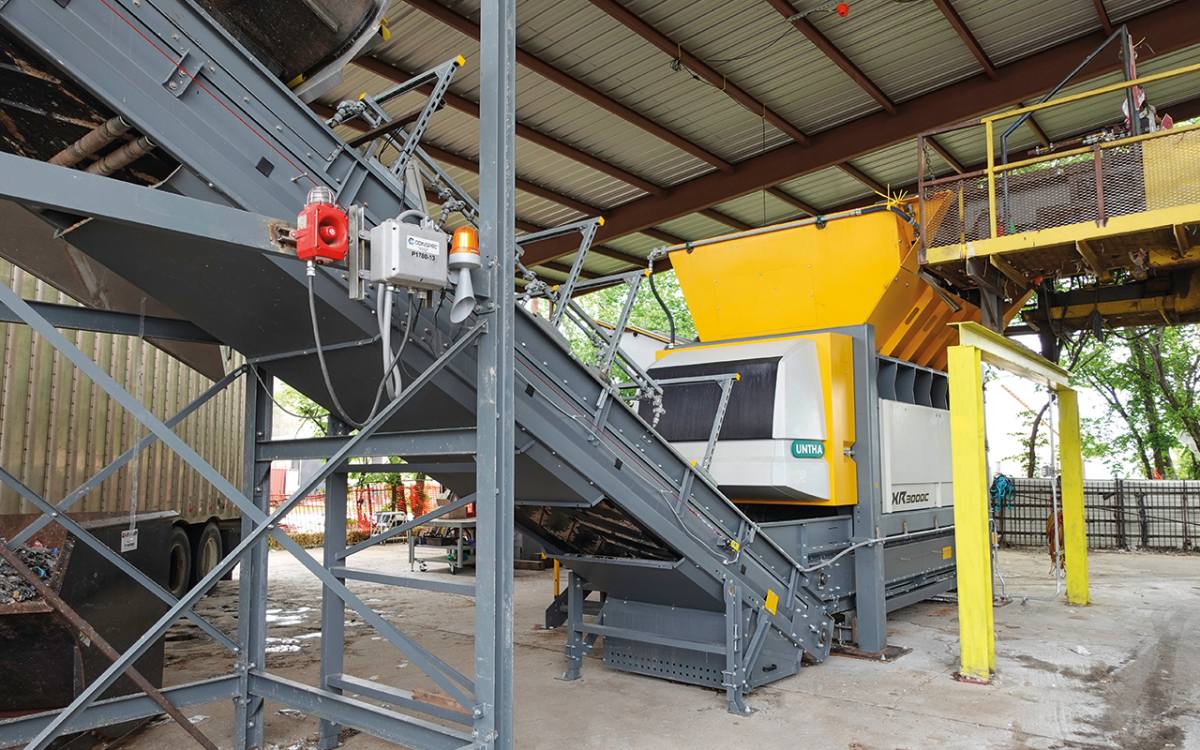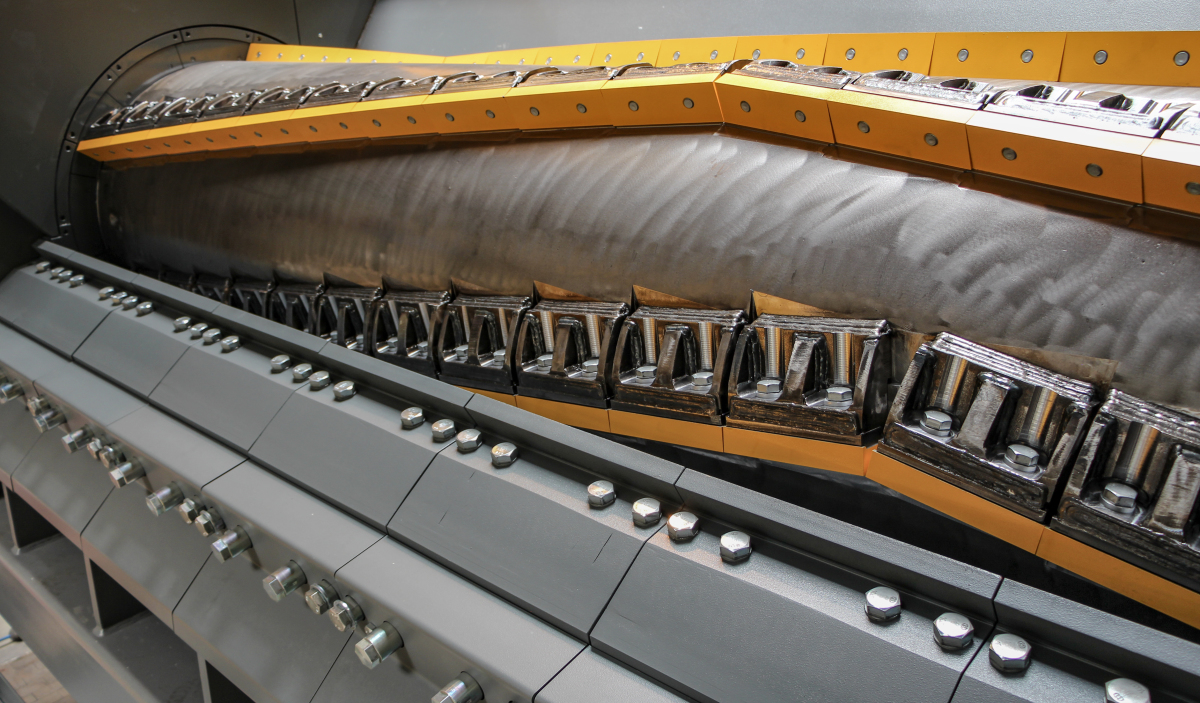Even greater sustainability in paper production
21.11.2025The paper industry worldwide is firmly committed to sustainability and the circular economy. This is reflected in high recycling rates and the use of bioenergy and substitute fuels. The use of substitute fuels (RDF) is helping the paper industry to significantly reduce its consumption of coal, gas, and oil, and is having a positive impact on the utilization of non-recyclable waste materials. Many players in the paper industry create closed cycles within their companies by independently processing pulper ropes and paper rejects into RDF and using it directly for energy supply. This reduces energy and disposal costs and improves their carbon footprint.
 Paper industry relies on RDF production with UNTHA – KIVANÇ Adana/Turkey
Paper industry relies on RDF production with UNTHA – KIVANÇ Adana/Turkey
© UNTHA shredding technology GmbH
UNTHA shredders are an essential link in this cycle. They are positioned between production and energy generation and, being efficient shredders, help to process waste materials such as pulper strands and paper rejects thoroughly. Materials suitable for recycling are then sorted from this shredded material. The rest can be thermally processed as a substitute fuel to supply the company, and thus the entire production process, with energy. In the field of waste paper recycling, sufficient waste materials are produced to operate independently of additional energy sources.
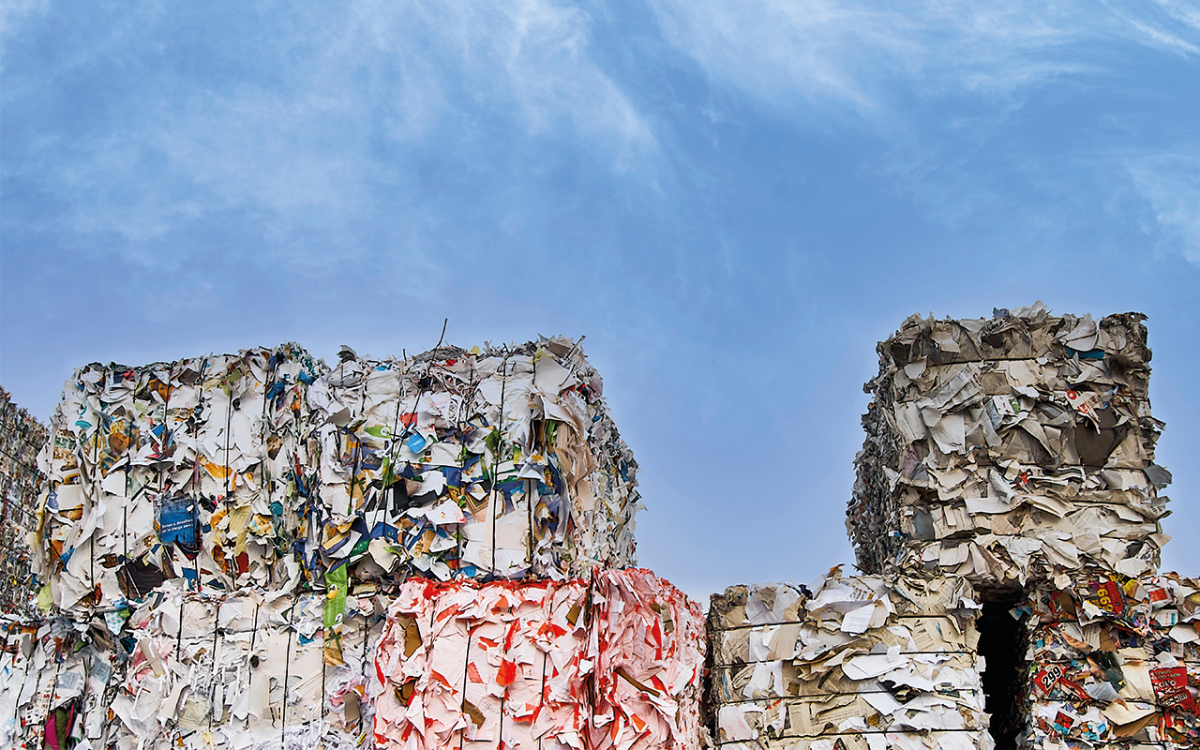 Paper rejects are turned into substitute fuel for production with UNTHA
Paper rejects are turned into substitute fuel for production with UNTHA
© UNTHA shredding technology GmbH
Making good use of paper rejects
Paper rejects are waste products from paper production and contain materials such as metals, plastics, and adhesive residues. In the past, these paper rejects were usually disposed of externally, which resulted in additional costs. Now, in line with the circular economy, the paper industry is focusing on sustainable in-house processing. Metallic components are now separated and recycled, while the rest is used as substitute fuel (RDF). Many companies produce this themselves, thermally recycling it in their own incinerators and using it to generate energy.
The paper manufacturer KIVANÇ Adana in Turkey is committed to a zero-waste approach and effectively uses waste materials generated during production. The company's annual production capacity is around 300 000 tons, with 100 % of its paper made from recycled fiber. To make its internal processes as sustainable as possible, KIVANÇ Adana relies on innovative solutions and state-of-the-art technology. “Paper production is very energy-intensive. We were therefore looking for a solution to reduce our energy costs and operate more sustainably at the same time,” says Ali Karagöl, Head of Technical Service at KIVANÇ Adana.
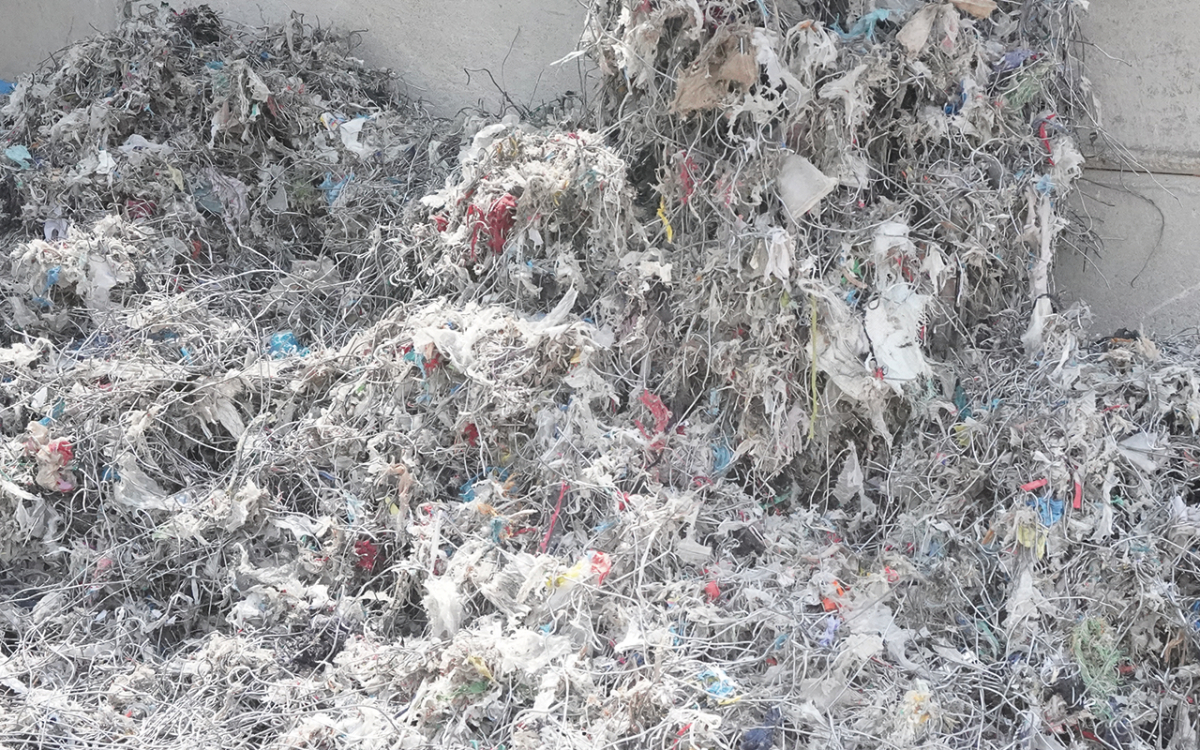 In the field of waste paper recycling, sufficient waste materials are produced to operate independently of additional energy sources
In the field of waste paper recycling, sufficient waste materials are produced to operate independently of additional energy sources
© UNTHA shredding technology GmbH
Ali Karagöl's team gathered comprehensive information on similar applications across companies worldwide. After a live demonstration of the XR by UNTHA Türkiye, the company quickly selected the UNTHA XR3000C, an energy-efficient, powerful single-shaft shredder whose C-cutter ensures a constant material feed and optimal shredding to 80 mm. The shredder impressed above all with its high throughput, consistent performance, low energy costs, and robust construction. The XR can shred around 20 tons of rejects per hour and process them into refuse-derived fuel (RDF). “We pursue a zero-waste approach in all our production processes and throughout the entire company. That's why we chose the UNTHA XR: it helps us achieve this goal and is itself very energy-efficient and productive,” explains Ali Karagöl.
The shredded raw material is burned in the co-incineration boiler to generate energy for the plant. This produces around 8.6 MW of electricity per hour – equivalent to approximately 50% of the company's energy requirements. In addition to cost savings, the use of EBS also results in an optimized CO2 balance. The company is therefore also making a valuable contribution to the environment and the population.
"The XR3000C is the perfect machine for KIVANÇ Adana. It could be optimally integrated into the company's plant, operates energy-efficiently, and shreds all reject components into a homogeneous material. This ensures continuous RDF production and smooth processes. The thermal recycling of paper rejects enables the company to reduce its energy costs significantly," explains Taner Topcu, Managing Director of UNTHA Türkiye.
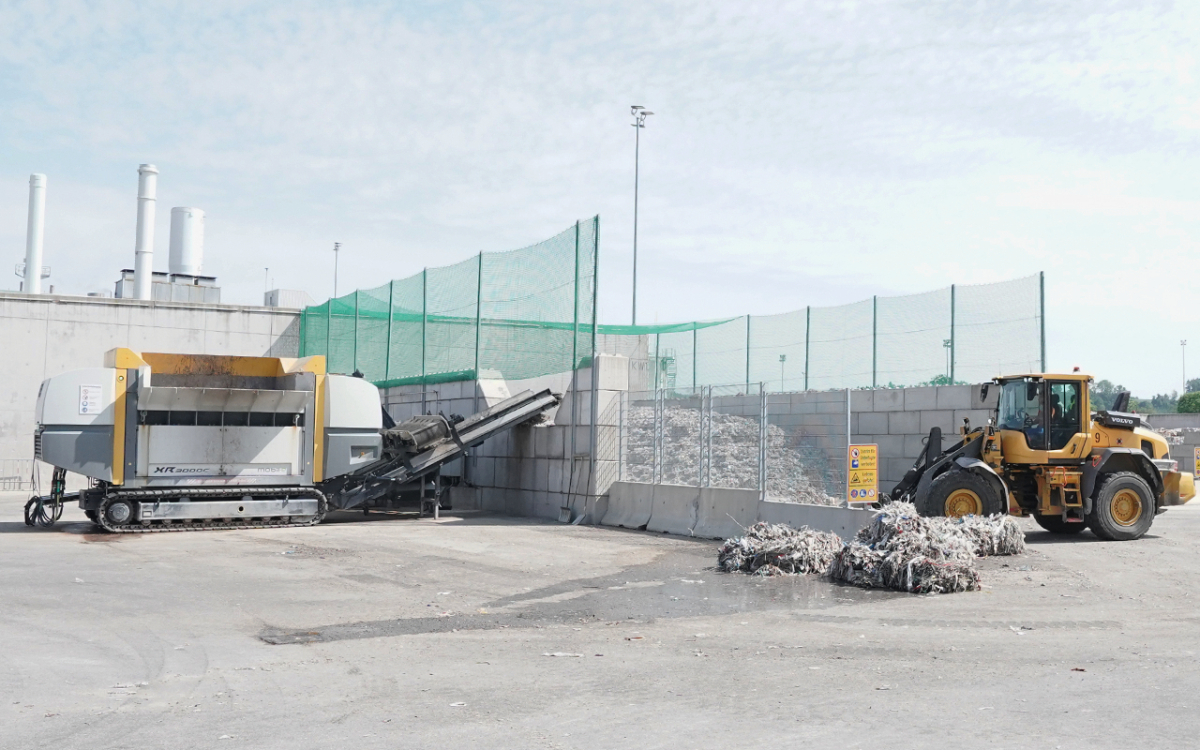 UNTHA XR3000C: Shredding pulper ropes for RDF − Laakirchen Papier AG in Austria
UNTHA XR3000C: Shredding pulper ropes for RDF − Laakirchen Papier AG in Austria
© UNTHA shredding technology GmbH
Pulper ropes as a valuable source of energy
Pulper ropes are particularly challenging waste materials. Their shape and texture make them difficult to process. However, the effort is worthwhile because they contain valuable materials that can be recycled or used to generate energy. The Austrian paper industry also relies on UNTHA shredders to process pulper ropes and obtain high-quality substitute fuels for its own production. One example is Laakirchen Papier AG, part of the internationally active Heinzel Group: "The XR from UNTHA meets all our expectations: the shredder is energy-efficient and powerful at the same time. The granulate is ideal for material and thermal recycling or further processing. This enables us to make economic use of the waste materials produced," says Johann Stadlmayr, project manager at Laakirchen Papier AG.

